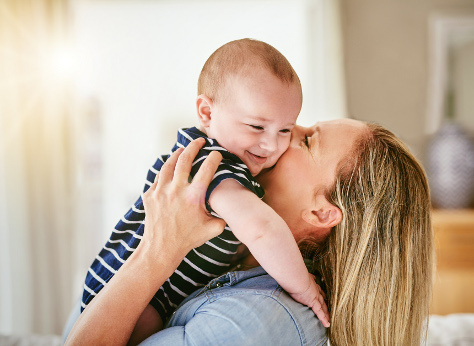Being the best single parent you can be
Tips of being the best single parent and how to stay civil with your ex

Being a single parent can be hard, but you’re not alone – there are 1.7 million lone parents in the UK, all trying their best for their children. Of course, dads can be lone parents too but 9 in ten one parent households are headed by a woman.
Parents end up caring for children mainly on their own for many reasons – separations, deaths or sometimes because the other parent was not free to be with this family even before the birth.
Children – and parents – can thrive just as much in a single family as in any other shape but may need to make efforts and accept help to smooth the way.
Contact with an ex
You might feel you’re best rid of the other person, especially if you parted in conflict. But ultimately there are two reasons you need to try to stay in touch and not be toxic with one another:
-
One is for your child, who really needs to know their other parent who is, after all, half of them. If you have nothing good to say about them, and perhaps a lot of bad, you may upset your child who could feel that criticism applies to them as well.
- The other is that your ex may no longer be your partner but is your child’s parent, and co-parenting supports you as well as your child. Non-resident parents lose touch with their children when a break up happens for all sorts of complex reasons but rarely because they don’t love their child. Contact should be maintained, yet if there are concerns about the child’s safety, child supervision facilities at a Child Contact Centre could be the most civil and safe answer (National Association of Child Contact Centers: www.naccc.org.uk)
Times when you ‘exchange’ your child can be the most stressful for them – especially if they’re old enough to recognise tension between the two of you. Keep your greeting simple by saying have a “good time!”. Now’s not the time for chasing up child maintenance or complaining about what your child ate last time they met up.
It’s more important in that moment that you’re shown telling your child that you want them to go and have fun and that you’re pleased that they are spending time with their other parent. Important parenting conversations are better had separately by private phone call or a message.
Also accept that it’s not always possible to have the same rules in both homes – unless of course it’s a safety issue. Instead your child will adapt and grow to learn that there are different rules in different places.
Name
Names are important and can be a minefield for a single-parent family. You may want to change your name or revert to a previous one after a break up but for children links with both of their parents is vital and their name may be the last and only such tie. For this reason, the courts may insist you leave a child’s name as it is until they are 18 and can make the decision themselves.
Support systems
Parents need support systems – a network of friends and family to help them – and children need contact with the non-resident parent and to family members such as grandparents, aunts, uncles and cousins, from both sides of the family. Friends and family can help with babysitting, or a chance to share days out or a listening ear. There are many organisations and charities that offer support to families, and a range of groups that can offer self-help and friendship for single parents.
Anniversaries can be hard
Parents need to be aware that the first birthday or Christmas, Chanukah or Diwali after a split may be distressing, underlining as it does that last year your family had a different shape. Children may want to cling to traditions you’d be glad to discard and for the same reason – they remind you of the past. You and your family may need to get together and talk over what would feel good and what you’d like to keep and introduce, to make your own traditions and keep the best of the past alive.

Bounty “Sex & Relationship” articles are written by expert Suzie Hayman. Suzie is agony aunt for Woman magazine, a Relate trained counsellor, and an accredited TripleP (Positive Parenting Programme) parenting educator. She makes frequent appearances on TV and radio and as well as writing 31 books, Suzie writes features on parenting, relationships, sex and couples counselling, for a wide range of national magazines and newspapers